Olympic Dreams: Assembling History’s Greatest Men’s Medley Relays
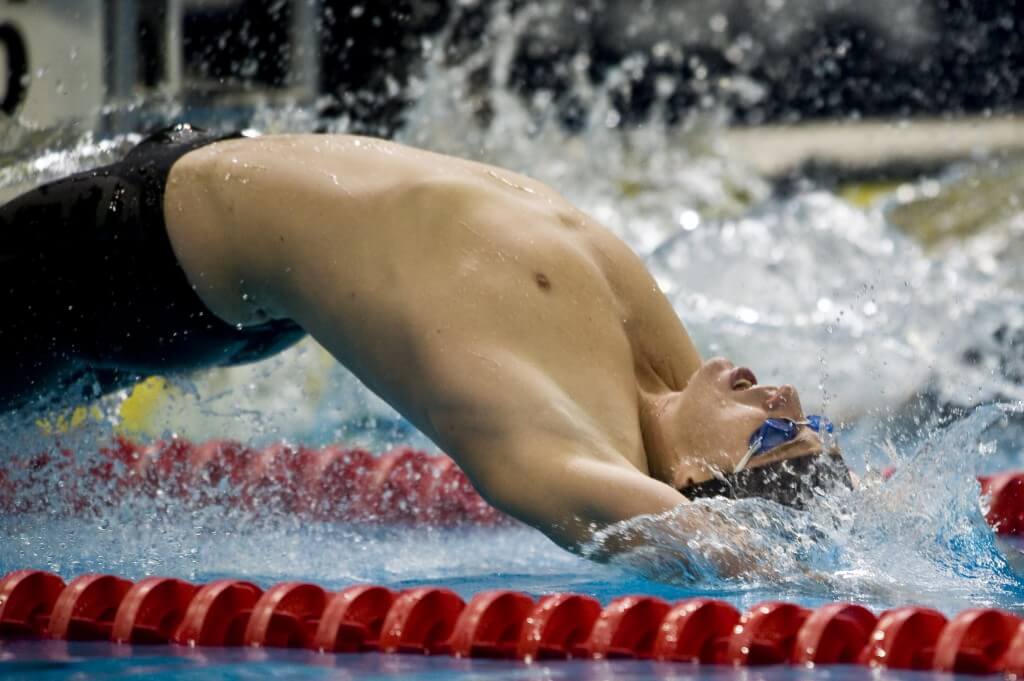
Olympic Dreams: Assembling History’s Greatest Men’s Medley Relays
The countdown to the Olympic Games in Tokyo, albeit delayed by the COVID-19 pandemic, is under the 100-day mark. In three months, the cauldron will be lit, kicking off more than two weeks of competition, including nine days of swimming action. The Swimming World team has its credentials nailed down and is eager to provide coverage of the various storylines.
As competition approaches, Swimming World has planned some historical pieces that not only appreciate the past, but hopefully will encourage debate and thought. In the weeks ahead, Swimming World will produce a short series that looks at the relay events contested at the Olympic Games and examines certain countries’ best all-time squads. What does that mean? It is not an exercise in selecting the best relay that existed, but a fun experiment crossing generations and eras.
The series opens with the men’s 400 medley relay. Some countries may have multiple entries since their success allows for it. If a country has three superb legs, but is missing a legitimately stellar fourth leg, you will not see its inclusion. The goal is to provide only the most spectacular options.
We encourage our readers to weigh in with their opinions, or to simply consider what is presented for personal reflection. We also suggest not getting caught up in only the current era, which boasts the fastest times based – simply – on the evolution of athletes, training techniques, equipment and facilities. We encourage our readers to take a broader view, and to appreciate history and the growth of the sport over time.
400 Medley Relay (All-Time Lineups)
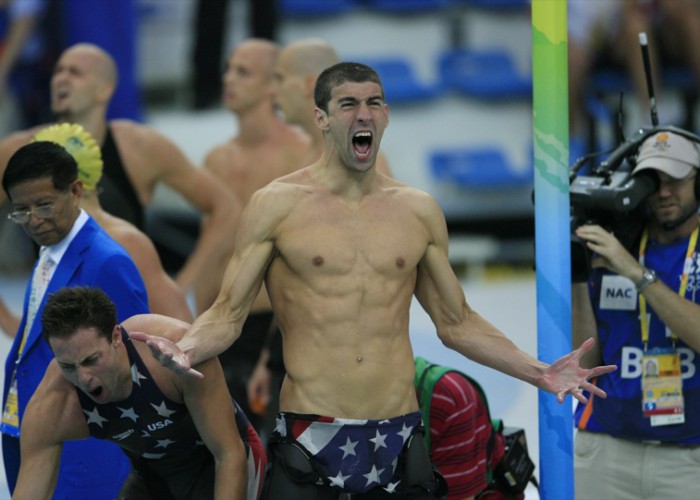
Michael Phelps
USA #1
Aaron Peirsol (Backstroke)
John Hencken (Breaststroke)
Michael Phelps (Butterfly)
Johnny Weissmuller (Freestyle)
Note: This relay has it all. Each member is an Olympic gold medalist in his 100-meter stroke, with Peirsol, Phelps (three-peat) and Weissmuller all repeating. Hencken, meanwhile, captured gold and bronze in the 100 breaststroke in his two Olympiads. Not surprisingly, all set world records in their respective events and demonstrated longevity.
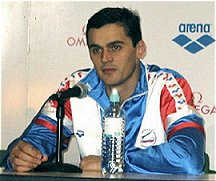
Alexander Popov
Soviet Union/Russia
Igor Polyanksy
Roman Sludnov
Denis Pankratov
Alexander Popov
Note: Unlike the United States’ top relay, the Soviet Union/Russia entry is comprised of athletes who competed from the late 1980s onward. The weakest link is the breaststroke leg, and all Sludnov did was become the first man to crack the minute barrier. Having sprint king Popov on the anchor leg is a major boost.
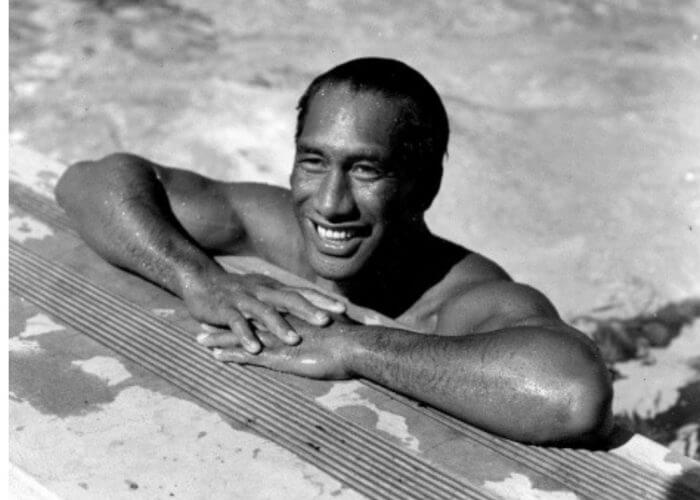
Duke Kahanamoku. Photo Courtesy: International Swimming Hall of Fame (ISHOF)
USA #2
Adolph Kiefer
Steve Lundquist
Mark Spitz
Duke Kahanamoku
Note: The most obvious part of the squad is Spitz, which means the man who won seven gold medals at the 1972 Olympics in Munich couldn’t even break onto his country’s A relay. Because he competed in the 1930s, Kiefer does not receive the credit he deserves. The backstroke star was well ahead of his time.
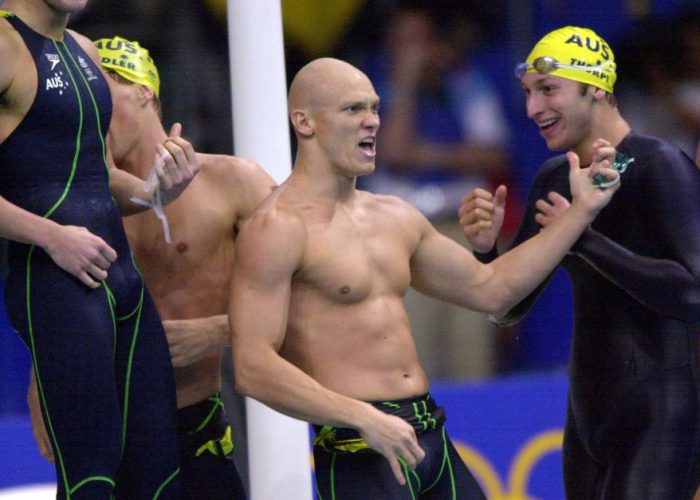
Photo Courtesy:
Australia #1
David Theile
Christian Sprenger
Michael Klim
Mike Wenden
Note: The strength of this relay sits in the bookends, as Theile was a two-time Olympic titlist in the 100 backstroke while Wenden was the gold medallist over 100m and 200m freestyle in 1968. Klim was known for being a superb relay contributor during his career, having set the world 100m freestyle record leading Australia off to upset victory over the USA in the 4x100m freestyle at Sydney 2000.
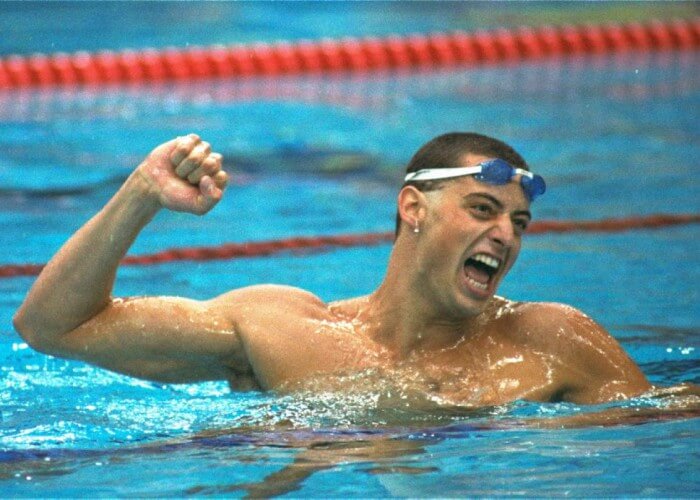
Photo Courtesy: Swimming World Archive
USA #3
John Naber
Brendan Hansen
Pablo Morales
Matt Biondi
Note: Like the first two American relays, every member of this quartet was a world-record holder during his career, with Naber, Morales and Biondi earning individual gold medals on the Olympic stage. The four men respectively attended USC, Texas, Stanford and Cal, making for some good trash-talk sessions during relay-exchange practice.
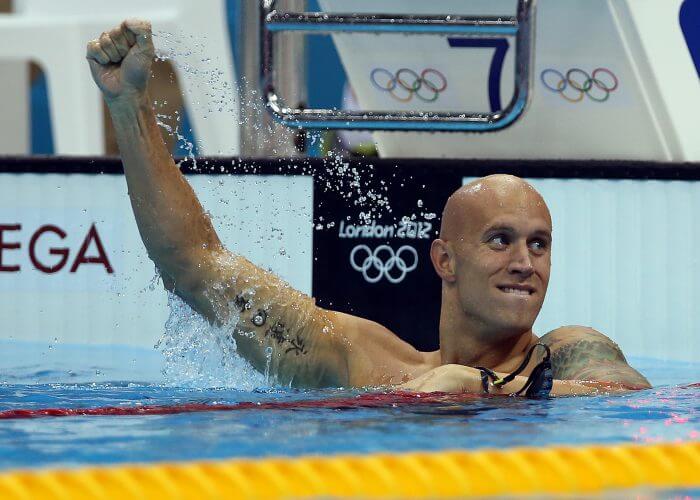
Photo Courtesy: Swimming Canada
Canada
Mark Tewksbury
Victor Davis
Bruce Robertson
Brent Hayden
Note: Canada puts together a sneaky strong relay, with 1992 Olympic champion Tewksbury jumpstarting the squad. Victor Davis, who died tragically young, was a phenomenal racer who would likely serve as the guy who ignites a fire on the deck before the race, while Brent Hayden stacks up as world 100 freestyle champion of 2007.
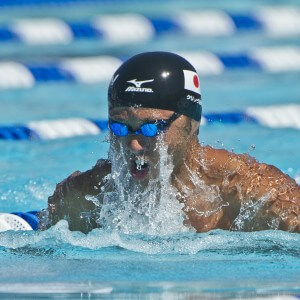
Photo Courtesy: Peter H. Bick
Japan
Masaji Kiyokawa
Kosuke Kitajima
Takashi Ishimoto
Yasuji Miyazaki
Note: Ishimoto was a multi-time world-record setter in the 100 butterfly, but the event was not part of the Olympic program during his heyday in the 1950s. Having Kitajima on the breaststroke leg is as reliable as it gets.
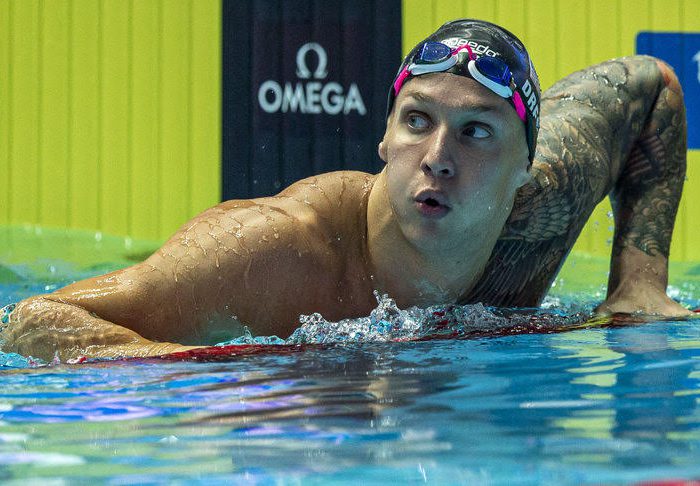
Caeleb Dressel. Photo Courtesy: Patrick B. Kraemer
USA #4
Warren Kealoha
Chet Jastremski
Caeleb Dressel
Jim Montgomery
Note: Kealoha is probably the eyebrow-raising name on this relay, but he was a two-time Olympic champion in the 1920s and going back-to-back is an impressive feat regardless of the era. Based on his back-to-back world titles and world record last summer, Dressel earned the butterfly slot over several elite names, including Ian Crocker.
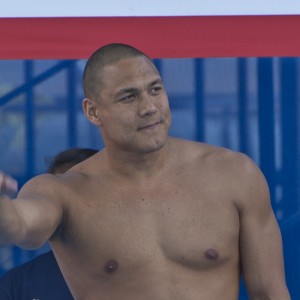
Photo Courtesy: Peter H.Bick
Australia #2
John Monckton
Brenton Rickard
Geoff Huegill
John Devitt
Note: John Devitt, the world-record holder and Olympic champion in controversial circumstances in 1960, handles the anchor leg for this Aussie unit, which is solid but a clear step below the primary relay.
Odds and Ends
The truth is, we could have fielded additional United States squads, but a line must be drawn somewhere. Not shockingly, some big names were left off these all-time relays, a situation which speaks to the incredible depth of Team USA through the years. Surely, opinions will differ and our readers are encouraged to suggest changes they feel are warranted.
South Africa, Hungary and Great Britain were all considered for inclusion, but the lack of a top-flight backstroker kept them on the outside. South Africa would have followed its backstroker with Cameron van der Burgh, Chad Le Clos and Jonty Skinner. As for Hungary, Norbert Rozsa would have been the likely choice for the breaststroke leg, with Laszlo Cseh and Alfred Hajos handling the butterfly and freestyle duties. For Great Britain, its obvious strength would have been Adam Peaty, who has defined greatness in the breaststroke.




Hmmm…I think I would have picked Ryan Murphy for the backstroke leg in the A relay for USA. I feel like he’s a better choice due to his current times being better than everyone else’s.
Thanks for the input, Andrew. As noted in the article, we cannot simply rely on current times when discussing historical greatness. Eras change and, of course, the fastest times will be from today. The key is to look at what athletes achieved in their eras and their overall bodies of work.